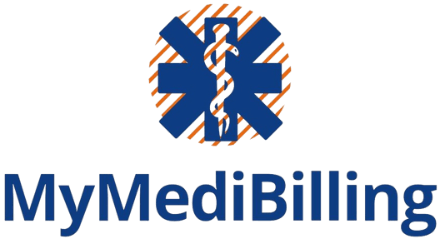Introduction
Electronic Health Records (EHRs) have transformed the healthcare landscape by significantly enhancing patient care and safety. With EHRs, healthcare professionals have immediate access to a patient’s comprehensive medical history, including medications, allergies, and test results. This instant access enables informed decision-making and personalized treatment plans, thereby reducing the likelihood of medical errors, such as prescribing incorrect medications or administering harmful treatments.
Moreover, EHRs can alert healthcare providers to potential drug interactions and allergies, further bolstering patient safety. By providing a thorough understanding of a patient’s health history, EHRs facilitate accurate diagnoses and timely interventions, ultimately leading to improved patient care and safety. Furthermore, EHRs promote seamless communication and coordination among healthcare teams, ensuring that all providers are aligned in their care plans.
This collaborative approach prevents communication gaps and ensures that all healthcare team members work towards a common goal of enhancing patient outcomes. With EHRs, healthcare providers can effortlessly share information, such as test results and treatment plans, with other care team members, resulting in more coordinated and efficient care delivery. This enhanced communication and coordination ultimately lead to better patient care and safety, as all healthcare team members work together to provide optimal care for the patient.
Key Takeaways
- Electronic health records improve patient care and safety by providing accurate and up-to-date information to healthcare providers.
- Streamlined communication and coordination among healthcare teams lead to better patient outcomes and reduced medical errors.
- Enhanced efficiency and productivity in healthcare facilities are achieved through the use of electronic health records.
- Better access to patient information allows for more informed decision-making and improved continuity of care.
- Electronic health records result in cost savings and financial benefits for healthcare organizations.
Streamlined Communication and Coordination
One of the most significant benefits of electronic health records (EHRs) is the streamlined communication and coordination they enable among healthcare providers. With EHRs, healthcare professionals can easily share patient information, test results, and treatment plans with other members of the care team, ensuring that everyone is on the same page when it comes to a patient’s care plan. This seamless exchange of information helps to prevent communication gaps and ensures that all providers are working towards the same goal of improving patient outcomes.
Additionally, EHRs allow for real-time communication between healthcare providers, enabling them to collaborate on patient care more efficiently and effectively. Moreover, EHRs facilitate better coordination of care by providing a centralized platform for healthcare teams to access and update patient information. This centralized approach to managing patient data helps to prevent duplication of tests and treatments, ultimately leading to more efficient and cost-effective care delivery.
By streamlining communication and coordination among healthcare providers, EHRs help to ensure that patients receive the most appropriate and timely care possible, leading to improved patient outcomes and satisfaction. Overall, the streamlined communication and coordination enabled by EHRs have a significant impact on improving patient care and safety.
Enhanced Efficiency and Productivity
Electronic Health Records (EHRs) have significantly enhanced the efficiency and productivity of healthcare organizations by streamlining administrative tasks and reducing paperwork. With EHRs, healthcare providers can easily access and update patient information, eliminating the need for paper-based records and manual data entry. This streamlined approach to managing patient data allows for more efficient workflows and reduces the time spent on administrative tasks, ultimately leading to increased productivity among healthcare staff.
Additionally, EHRs enable healthcare organizations to automate routine processes, such as appointment scheduling and billing, further improving efficiency and reducing administrative burden. Furthermore, EHRs have revolutionized the way healthcare providers manage and access patient information, leading to more efficient and effective care delivery. With EHRs, healthcare professionals can quickly retrieve patient records, test results, and treatment plans, allowing for more timely interventions and improved patient outcomes.
This enhanced access to critical patient information helps to streamline clinical workflows and reduce the time spent searching for paper-based records, ultimately leading to increased productivity among healthcare providers. Overall, the enhanced efficiency and productivity enabled by EHRs have had a significant impact on improving the overall quality of care delivery.
Better Access to Patient Information
| Benefit | Description |
|---|---|
| Improved Patient Care | Electronic health records allow for better coordination of care and access to patient information, leading to improved patient outcomes. |
| Enhanced Patient Safety | EHRs reduce the risk of medical errors through improved accuracy and completeness of patient information. |
| Increased Efficiency | Electronic records streamline workflows and reduce paperwork, leading to time and cost savings for healthcare providers. |
| Better Access to Information | Healthcare providers can access patient records from anywhere, leading to better-informed decision-making. |
| Improved Communication | EHRs facilitate better communication among healthcare providers, leading to more coordinated care. |
| Enhanced Research and Public Health | Electronic records enable easier data collection for research and public health purposes, leading to improved population health. |
| Cost Savings | By reducing paperwork and improving efficiency, EHRs can lead to cost savings for healthcare organizations. |
| Reduced Duplication of Tests | With access to comprehensive patient information, healthcare providers can avoid unnecessary duplication of tests and procedures. |
| Improved Patient Engagement | Healthcare providers can access patient records from anywhere, leading to better-informed decision-making. |
| Better Compliance and Reporting | Electronic records make it easier for healthcare organizations to comply with regulations and report on quality measures. |
Electronic Health Records (EHRs) provide healthcare providers with better access to comprehensive patient information, leading to more informed decision-making and personalized treatment plans. With EHRs, healthcare professionals can easily retrieve a patient’s medical history, medications, allergies, and test results, allowing for a more comprehensive view of the patient’s health status. This improved access to critical patient information helps to ensure that healthcare providers have all the necessary information to make accurate diagnoses and provide timely interventions, ultimately leading to improved patient outcomes.
Additionally, EHRs enable patients to access their health information, empowering them to take an active role in managing their health. With secure online portals, patients can view their medical records, test results, and treatment plans, allowing them to stay informed about their health status and actively participate in their care. This increased access to personal health information helps to improve patient engagement and satisfaction, ultimately leading to better health outcomes.
Overall, better access to patient information provided by EHRs has had a significant impact on improving the overall quality of care delivery.
Cost Savings and Financial Benefits

Electronic Health Records (EHRs) have led to significant cost savings and financial benefits for healthcare organizations by reducing administrative costs and improving operational efficiency. With EHRs, healthcare providers can streamline administrative tasks such as appointment scheduling, billing, and claims processing, leading to reduced administrative burden and lower operational costs. Additionally, EHRs enable healthcare organizations to automate routine processes, such as prescription refills and test orders, further reducing the time and resources spent on administrative tasks.
Furthermore, EHRs have been shown to reduce medical errors and unnecessary tests or treatments, leading to cost savings for both patients and healthcare organizations. By providing healthcare providers with instant access to a patient’s medical history, medications, allergies, and test results, EHRs help to prevent duplication of tests or treatments that could potentially harm the patient or lead to unnecessary costs. Additionally, EHRs can alert healthcare providers to potential drug interactions or allergies, further reducing the risk of medical errors and associated costs.
Overall, the cost savings and financial benefits provided by EHRs have had a significant impact on improving the overall efficiency and sustainability of healthcare delivery.
Support for Research and Public Health Initiatives
Electronic Health Records (EHRs) have played a crucial role in supporting research and public health initiatives by providing access to comprehensive patient data for analysis and reporting. With EHRs, researchers can easily access de-identified patient data for population health studies or clinical trials, enabling them to identify trends or patterns in disease prevalence or treatment outcomes. This access to comprehensive patient data has significantly advanced medical research and public health initiatives by providing researchers with valuable insights into disease prevention, treatment effectiveness, and population health trends.
Additionally, EHRs have facilitated better reporting of public health data by providing healthcare organizations with a centralized platform for collecting and analyzing population health data. With EHRs, healthcare providers can easily report notifiable diseases or public health threats to local or national public health agencies promptly, enabling them to respond quickly to potential outbreaks or health emergencies. This improved reporting of public health data has had a significant impact on improving disease surveillance and response efforts, ultimately leading to better public health outcomes.
Overall, the support for research and public health initiatives provided by EHRs has had a significant impact on advancing medical research and improving population health.
Increased Patient Engagement and Empowerment
Electronic Health Records (EHRs) have empowered patients to take an active role in managing their health by providing them with access to their own health information. With secure online portals, patients can view their medical records, test results, and treatment plans, enabling them to stay informed about their health status and actively participate in their care. This increased access to personal health information has led to greater patient engagement and satisfaction, ultimately leading to better health outcomes.
Furthermore, EHRs have facilitated better communication between patients and healthcare providers by enabling secure messaging and telehealth visits. With EHRs, patients can easily communicate with their healthcare providers about their health concerns or treatment plans without having to schedule an in-person visit. This improved communication has led to more personalized care delivery and better patient-provider relationships, ultimately leading to improved patient satisfaction and outcomes.
Overall, the increased patient engagement and empowerment provided by EHRs has had a significant impact on improving the overall quality of care delivery.
Conclusion
Electronic health records (EHRs) have revolutionized the way healthcare is delivered by providing numerous benefits that improve patient care and safety. From streamlined communication and coordination among healthcare teams to enhanced efficiency and productivity within healthcare organizations, EHRs have had a significant impact on improving the overall quality of care delivery.
Additionally, better access to patient information provided by EHRs has led to more informed decision-making and personalized treatment plans for patients. Furthermore, EHRs have led to cost savings and financial benefits for both patients and healthcare organizations by reducing administrative costs and preventing medical errors or unnecessary tests or treatments. Moreover, EHRs have supported research and public health initiatives by providing access to comprehensive patient data for analysis and reporting.
Lastly, increased patient engagement and empowerment provided by EHRs have led to better health outcomes and satisfaction among patients. Overall, electronic health records have significantly advanced the way healthcare is delivered by providing numerous benefits that improve patient care and safety.

